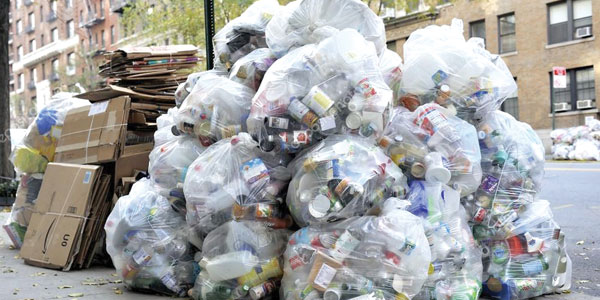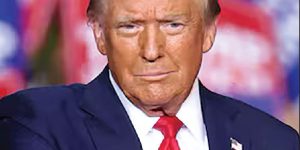
On March 31, New York became the third state, after California and Hawaii, to prohibit commercial establishments from offering plastic bags to their customers as a measure of environmental protection.
The measure is in the state budget that was approved that same day by the Senate and the Assembly and will start on March 1, 2020.
The new legislation, which was one of the first issues approved by the state legislature, authorizes counties the option of charging 5 cents for paper bags, of which two will be for local governments and three for the state Environmental Protection Fund.
The New York legislature worked until late the night of March 31 on the $175.5 billion spending plan, which includes measures from what Gov. Andrew Cuomo has called a “progressive agenda” and promised to have during his first 100 days in office.
“This budget is probably the strongest progressive statement that we’ve made,” Cuomo said to reporters, according to CBS News. “If you have big problems, it calls for big solutions.”
After intense negotiations with the leaders of both the Assembly, Carl Heastie, and the Senate, Andrea Stewart-Cousins, Cuomo announced the agreement after which the work to approve it began.
To be able to reach the agreement, Cuomo had to withdraw the project that would legalize marijuana for recreational purposes due to lack of support because of doubts among legislators about the impact on health and issues that they consider should be clear.
Another important measure is the one that will make New York the first state to have a toll on motorists driving into the busiest parts of Manhattan.
Other measures in the budget include the closing of up to three state prisons to be determined, the elimination of cash bail for minor offenses and arrests for non-violent crimes, an annual and permanent limit of 2 percent on property taxes and another $1 thousand millions for public education, among others.
__________________________________________________________________________
Nueva York, tercer estado en prohibir las bolsas de plástico
Nueva York se convirtió el 31 de marzo en el tercer estado, luego de California y Hawai, en prohibir a establecimientos comerciales ofrecer bolsas plásticas a sus clientes como una medida de protección al medio ambiente.
La medida está contenida en el presupuesto del Estado que fue aprobado ese mismo día por el Senado y la Asamblea y entrará en vigor el 1 de marzo del 2020.
La nueva legislación, que fue de los primeros asuntos con el visto bueno de la legislatura del estado, autoriza a los condados la opción de cobrar 5 centavos por las bolsas de papel, de los cuales dos serán para los gobiernos locales y tres para el Fondo de Protección Ambiental del estado.
La Legislatura de Nueva York trabajó hasta tarde la noche del 31 de marzo en el nuevo proyecto de presupuesto del 2020, de $175.000 millones de dólares, que incluye medidas de lo que el gobernador Andrew Cuomo ha llamado “agenda progresista”, que prometió tener para sus primeros 100 días.
“Este presupuesto es probablemente la declaración más progresiva que hemos hecho”, Cuomo le dijo a los reporteros, según lo reporta CBS News. “Si tienes grandes problemas, se requieren grandes soluciones”.
Luego de intensas negociaciones con los líderes de la Asamblea Carl Heastie y del Senado, Andrea Stewart-Cousins, Cuomo, demócrata, anunció el acuerdo tras lo cual comenzaron los trabajos para aprobarlo.
Para poder alcanzar el acuerdo Cuomo tuvo que retirar el proyecto que legalizaría la marihuana con fines recreativos por no contar con apoyo debido a dudas entre legisladores sobre el impacto en la salud y a temas que consideran deben estar claros.
Otra medida importante en la agenda es la que llevará a Nueva York a ser el primer estado en tener un peaje para cobrar por el ingreso a la parte baja de Manhattan, de gran congestión de tráfico.
Otras medidas en el presupuesto incluyen el cierre de hasta tres prisiones estatales a ser determinadas, la eliminación de fianza en efectivo por delitos menores y arrestos por delitos no violentos, un límite anual y permanente de 2 por ciento en impuestos de propiedad y otros $1 mil millones para la educación pública, entre otros.









